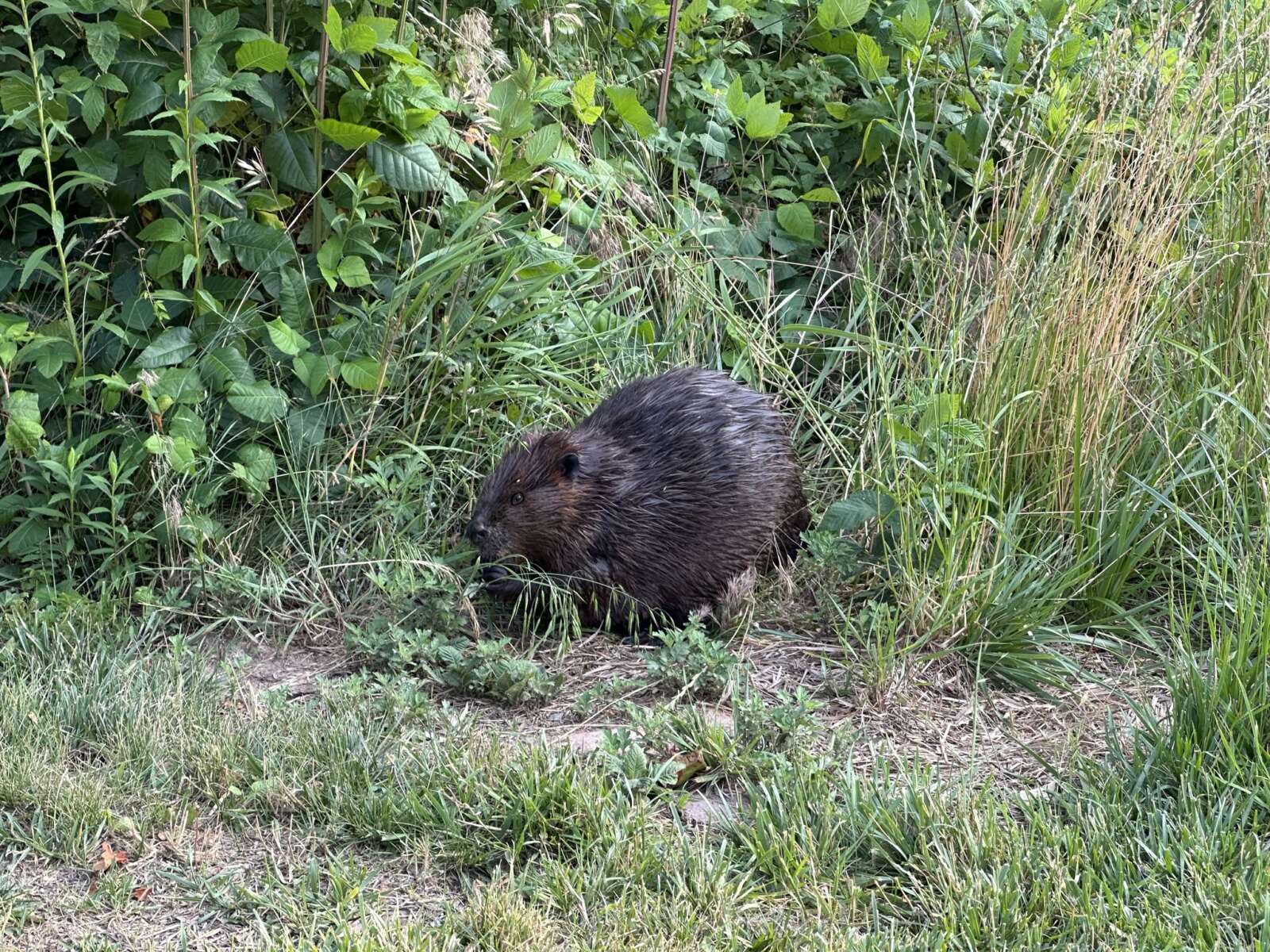This is a sponsored post by Dr. Elizabeth Arguelles, veterinarian and owner of Just Cats Clinic at Lake Anne Plaza. It does not reflect the opinion of Reston Now.
Constipation is one of the most common health issues associated with a cat’s digestive system. Though it usually doesn’t cause lasting harm, constipation is uncomfortable and needs to be addressed as soon as possible. It can also be a symptom of more serious underlying health issues.
If left untreated, constipation can even turn into obstipation, a condition in which the cat loses the ability to empty its colon on its own. It’s important to recognize the signs and understand the causes so you and your veterinarian can address your cat’s constipation and provide the best treatment plan.
What causes constipation?
Constipation happens when dry, hardened stool collects in a cat’s rectum and blocks the material behind it from exiting. It is more often seen in middle-aged or older cats, but younger felines can also get it. Some of the most common causes include:
- Hairballs (especially in longhaired cats)
- Pelvic injuries that result in a narrowed pelvic canal
- Ingestion of foreign bodies
- Obesity
- Unidentified causes
- Megacolon
- Pain medications such as opioids
Megacolon is a term used to describe dilated and weak colon. It is both a cause and result of constipation. When a cat’s colon becomes distended with dry, hardened fecal matter over a longer period of time, the organ’s muscles weaken and its ability to contract reduces. This tends to lead to more constipation in the future.
What are the signs that your cat is constipated?
If your kitty exhibits any of the symptoms mentioned below, it may be constipated. Make an appointment with your veterinarian so that the problem can be addressed as quickly as possible.
- Straining or crying out in pain when trying to “go number two”
- Small, dry, hard stools that are sometimes covered in mucous or blood
- Frequent “unsuccessful” trips to the litter box
- Sudden loss of appetite
- Weight loss
- Vomiting
- Abdominal discomfort
- Lack of grooming
How is constipation treated?
Once your veterinarian determines that your kitty is constipated and identifies an underlying cause, he or she may prescribe one or more of the following treatments:
- Stool softeners or laxatives
- Non-prescription high-fiber diets (for example, canned pumpkin, fiber)
- Prescription high-fiber diets
- Increased water consumption
- Increased exercise
- Medications to increase contractile strength of its large intestine
- Manual evacuation of the bowels
- Enemas (please note that this should only be administered by your veterinarian and never tried at home; over-the-counter enemas may contain substances that are toxic to your cat)
- Surgery
How can constipation be prevented?
Fortunately, there are some things that you can do to help reduce your cat’s chances of becoming constipated in the first place. It’s important to feed your cat a healthy diet and for kitties are that prone to constipation a diet of primarily wet food may be a good option. As always, provide access to clean, fresh water to help your kitty stay hydrated. Also for our longhaired felines, regular brushing will minimize the chances that hairballs will build up in their gastrointestinal tracts and cause constipation.
If you suspect your cat may be constipated, call your veterinarian for an appointment as soon as possible to minimize your cat’s discomfort.






